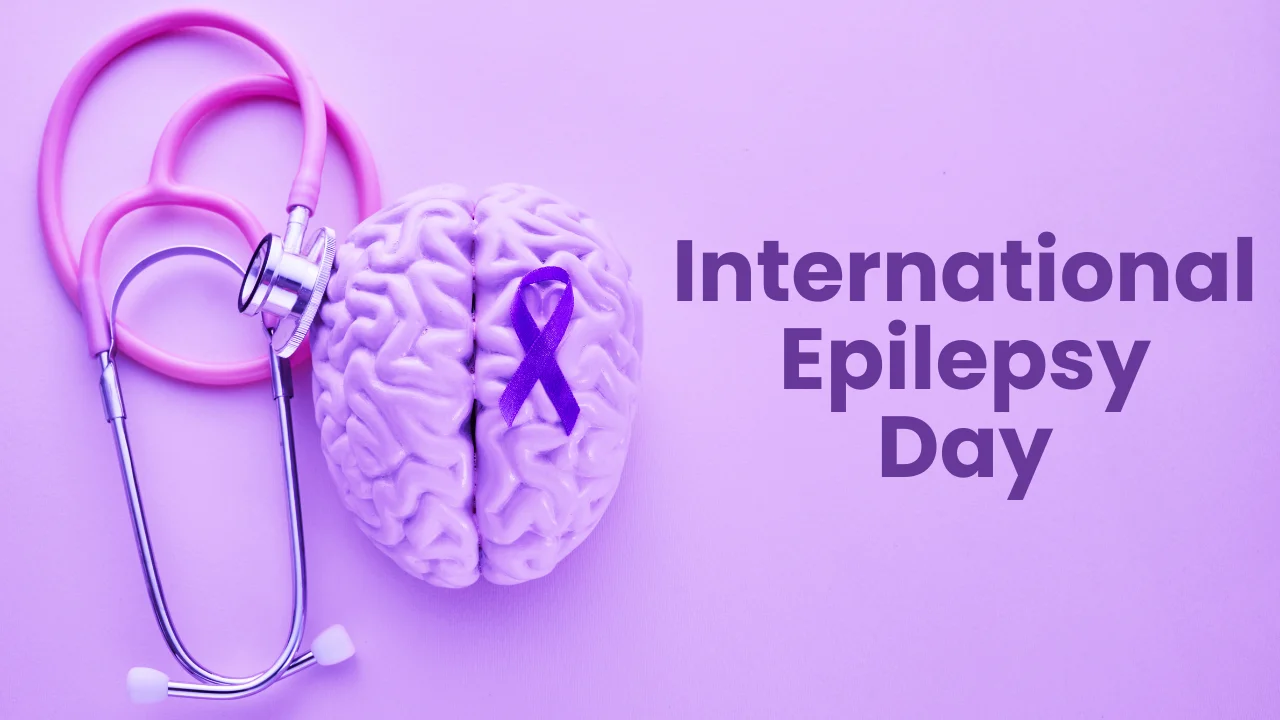International Epilepsy Day 2024
International Epilepsy Day, celebrated on the second Monday of February each year, aims to raise awareness about epilepsy, promote understanding, and reduce the stigma associated with the condition. This year it falls on 12th February.
International Epilepsy Day Theme 2024
The theme for International Epilepsy Day 2024 is “Milestones on My Epilepsy Journey.”
This theme emphasizes the importance of recognizing and celebrating the individual experiences of people living with epilepsy. It highlights their achievements and challenges throughout their epilepsy journey, showcasing the resilience, strength, and determination of individuals with epilepsy.
By focusing on personal stories and experiences, the theme aims to:
- Promote understanding and empathy for people living with epilepsy.
- Challenge misconceptions and reduce the stigma associated with the condition.
- Inspire and empower individuals with epilepsy to share their stories and connect with others.
- Raise awareness about the diverse experiences of people living with epilepsy.
- Celebrate the successes and achievements of individuals with epilepsy.
What is Epilepsy
Epilepsy is a chronic neurological condition characterized by recurrent seizures. Seizures are temporary disturbances in the electrical activity of the brain, causing a variety of physical and psychological symptoms. People of all ages, genders, and backgrounds can be affected by epilepsy, making it a significant global health concern.
Causes and Symptoms
The exact cause of epilepsy remains unknown in many cases. However, potential factors include:
- Genetics
- Head injury
- Brain infection
- Stroke
- Developmental brain abnormalities
Symptoms of seizures vary greatly depending on the location and severity of the electrical disturbance in the brain. Common symptoms include:
- Convulsions
- Loss of consciousness
- Staring spells
- Sensory disturbances
- Confusion
- Automatic behaviors
Diagnosis and Treatment
An accurate diagnosis of epilepsy is crucial for receiving proper treatment. Diagnosis involves a comprehensive medical history, physical examination, and neurological tests like electroencephalograms (EEGs) and neuroimaging.
Several effective treatment options are available for epilepsy, including:
- Anti-seizure medications: These medications help control the electrical activity in the brain and reduce the frequency and severity of seizures.
- Surgery: In some cases, surgery may be considered to remove the area of the brain causing seizures.
- Vagus nerve stimulation (VNS): This non-invasive treatment involves implanting a device that stimulates the vagus nerve to reduce seizure frequency.
- Ketogenic diet: This specialized diet may help control seizures in some children.
Living with Epilepsy
Epilepsy can significantly impact individuals’ lives, affecting their social, emotional, and educational experiences. However, with proper management and support, people with epilepsy can live fulfilling and productive lives. Here are some ways to manage epilepsy:
- Adhere to treatment plans: Taking medications as prescribed and attending regular doctor appointments are crucial for controlling seizures.
- Get enough sleep: Adequate sleep is essential for managing epilepsy as sleep deprivation can trigger seizures.
- Manage stress: Stress can exacerbate seizures, so relaxation techniques like meditation and yoga can be beneficial.
- Stay informed and connected: Participating in support groups and online communities can offer valuable information, resources, and emotional support.
Raising Awareness and Reducing Stigma
Epilepsy is often misunderstood and stigmatized. International Epilepsy Day, celebrated on the second Monday of February each year, aims to raise awareness, promote understanding, and challenge societal misconceptions. By sharing knowledge and personal stories, we can create a more inclusive environment where people with epilepsy feel supported and empowered to reach their full potential.
History of International Epilepsy Day
International Epilepsy Day (IED), celebrated on the second Monday of February each year, has a relatively short history but a significant impact. Let’s delve into its origins and evolution:
2015
- The International Bureau for Epilepsy (IBE) and the International League Against Epilepsy (ILAE) jointly established IED in 2015.
- Recognizing the need for increased awareness and understanding of epilepsy, they proposed the idea to the World Health Organization (WHO).
- The WHO officially endorsed the initiative, leading to the first-ever celebration of IED on February 9th, 2015.
Early Years
- Initial IED celebrations focused on general awareness about epilepsy, its causes, symptoms, and treatment options.
- Events like awareness walks, educational campaigns, and media coverage helped generate public discourse and reduce stigma.
Expanding Reach and Impact:
- IED has significantly expanded its reach over the years, with events and activities taking place in countries across the globe.
- Social media has played a crucial role in amplifying the message of IED, connecting individuals and communities worldwide.
- Collaborations with diverse stakeholders, including healthcare professionals, researchers, policymakers, and patient advocacy groups, have strengthened the impact of IED.
Looking Forward – Purple Day 2024
- IED continues to be a critical platform for raising awareness, promoting understanding, and advocating for improved epilepsy care.
- By celebrating personal stories and experiences, IED empowers individuals with epilepsy and encourages inclusive communities.
- Looking forward, IED remains committed to its mission of ensuring a world free from epilepsy and stigma, where everyone with epilepsy can live meaningful and fulfilling lives.
Significance of International Epilepsy Awareness Day
International Epilepsy Day plays a crucial role in:
- Raising awareness about an often misunderstood condition.
- Promoting positive social change and reducing stigma.
- Empowering individuals with epilepsy to live fulfilling lives.
- Advocating for improved access to healthcare and resources.
- Supporting research and development of new treatments.
By working together, we can create a world where epilepsy is understood, and accepted, and where everyone with epilepsy has the opportunity to reach their full potential. Let’s join hands and support International Epilepsy Day and continue to make a difference in the lives of people living with epilepsy.
12th February 2024 Special Day
On the 12th of February 2024, International Epilepsy Day shines a spotlight on epilepsy, fostering awareness, understanding, and dismantling the stigma linked to this condition. This annual observance, held every second Monday of February, serves as a collective effort to promote knowledge about epilepsy and create a more supportive and informed environment for individuals affected by this neurological disorder.
- Indian Bank Recruitment 2025 Out for 1500 Apprentice Posts
- Indian Bank Apprentice Salary 2025, Pay Scale, Salary Structure
- Indian Bank Apprentice Syllabus & Exam Pattern 2025, Check Details
- Railway RPF Syllabus 2024, Check Exam Pattern, Topic And Syllabus
- SSC JE vs RRB JE, Which Is Better? Know Detailed Comparison
- SSC CGL Study Plan 2025 For Next 25 Days With Tips, Tricks

Hello, I’m Aditi, the creative mind behind the words at Oliveboard. As a content writer specializing in state-level exams, my mission is to unravel the complexities of exam information, ensuring aspiring candidates find clarity and confidence. Having walked the path of an aspirant myself, I bring a unique perspective to my work, crafting accessible content on Exam Notifications, Admit Cards, and Results.
At Oliveboard, I play a crucial role in empowering candidates throughout their exam journey. My dedication lies in making the seemingly daunting process not only understandable but also rewarding. Join me as I break down barriers in exam preparation, providing timely insights and valuable resources. Let’s navigate the path to success together, one well-informed step at a time.






